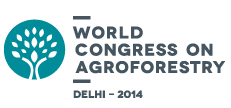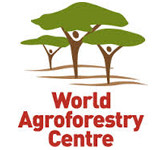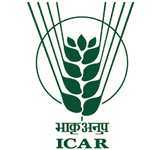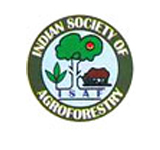
Vigyan Bhavan & Kempinski Ambience
10 - 14 February 2014
Delhi, India
blog

Farmers in Talensi, Ghana, regenerate their trees. Photo by Tony Rinaudo
The agroforestry system known as Farmer Managed Natural Regeneration (FMNR) is spreading rapidly and widely, but can this be explained by good science?
Science guides us on optimal species to promote, plant spacing, pruning methods, soil fertility impacts, moisture levels, annual crop yields and much more.
Science also explains important concepts relevant to FMNR, such as apical dominance (i.e. why the central stem of a plant grows more strongly than other side stems) and why such rapid growth from tree stumps is possible. But the reason why FMNR is being adopted on a very large scale is not primarily because we got the science right.
I believe FMNR is being adopted by tens of thousands of farmers in dozens of countries in Africa and Asia because it is a low cost, rapid and flexible tool which is in the hands of farmers.
FMNR enables farmers to respond quickly to their ever changing economic, environmental and social reality. They adapt this flexible tool, happily sacrificing ‘optimum output’ for the much more desirable outcome of yield/income stability.
Resource-poor, risk-averse farmers have to survive and want to thrive in a highly risky social-environmental-economic reality. Failure can literally mean disaster, even death so they opt for stability of yield/income over time rather than maximum yield in some years.
In 2013, Dr. Richard Stirzaker from the CSIRO in Australia wrote the following:
“I have followed the development of Farmer Managed Natural Regeneration (FMNR) since its very beginning in Niger during the early 1980’s. Thirty years later, independent scientists have hailed FMNR as contributing to the greatest positive transformation of the Sahel. I agree.
FMNR is a counter-intuitive idea. Traditional agroforestry has always tried to specify the ultimate tree-crop combination and arrangement that maximises complementarily. FMNR is based on a naturally regenerating suite of tree species, each growing where they are because they have demonstrated an ability to best exploit a specific niche and overcome prevailing constraints. The farmer then thins and selects from this ‘template’ that nature has produced. Farmers derive their livelihoods from cropping around the trees, cutting browse for animals, producing construction poles and firewood. The contribution each of these options make towards food security depends on current trees density, rainfall, availability of labour and the prevailing prices for the different products, providing food and income stability in a very variable environment.
I do not think that any research program, no matter how well funded, would have come up with the idea, because it expertly combines the subtleties of location specific tree selection with farmer specific opportunities and constraints.”
This is not an attack on good science, nor does it nullify the need for science to guide the targets that FMNR should move towards. It is a call to give greater emphasis on the real needs of farmers, to include them in the scientific method and even, sometimes, to follow their lead.
More information on FMNR can be found here: Farmer_Managed_Natural_Regeneration
A brief video explanation on FMNR can be found here: http://www.youtube.com/watch?v=E9DpptI4QGY
By Tony Rinaudo
R & D Advisor, Natural Resources
Food Security and Climate Change
World Vision Australia
tony.rinaudo@worldvision.com.au






2 People have left comments on this post
As rightly said, research shall be more focused to guide the farmers. Sometimes some specific tree species are promoted to meet the demand of the Industry. Not fair, because the soil and other conditions will not give him optimum yield
I had attended the World Congress on Agro forestry at New Delhi. Our team from karanatak mad presentation on gender oriented biofuel devlopment with reference to Neem seeds collection by the Sarwad village women. It was wonderful opportunity to share our experiences and get to know others experiences also. There is need for such gathering sharing and working on the issues related to the decisions taken at such forums.
Dr.Babu G Sajjan
Director
Institute for Rural Development (IRD) Bijapur
Biofuel Lead NGO for the Karnataka state Biofuel development Board
plot no 03, basav nilay, sadashivanara, near ring road Bijapur-586109
ph:08352-277003 mob:09480120391/09448507305